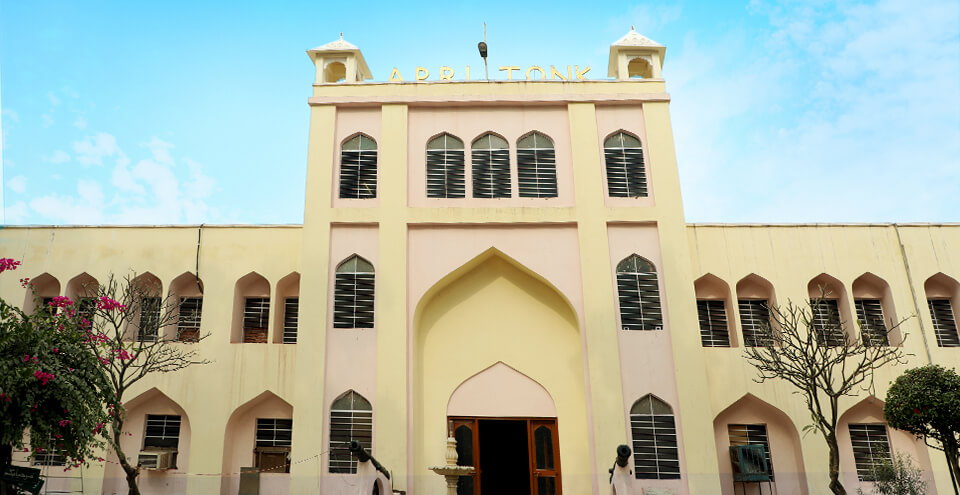
The Arabic and Persian Research Institute in Tonk: A Beacon of Linguistic Heritage
Located in the historic city of Tonk, Rajasthan, The Arabic and Persian Research Institute stands as a testament to the rich cultural and intellectual heritage of the region. This distinguished institution is dedicated to the study, preservation, and promotion of Arabic and Persian languages and literature, making it a vital hub for scholars, researchers, and enthusiasts of these ancient languages.
A Glimpse into the Institute
Founded with the aim of fostering a deep understanding of Arabic and Persian linguistic traditions, the institute has become a significant center for research and education. Its establishment underscores the historical and cultural connections between the Indian subcontinent and the Arab and Persian worlds, reflecting centuries of scholarly exchange and influence.
Historical Significance
The Arabic and Persian Research Institute holds a special place in Tonk’s cultural landscape. Tonk, known for its rich history and architectural heritage, has long been a center of learning and scholarship. The institute builds on this legacy by focusing on the study of Arabic and Persian, languages that have played a crucial role in the intellectual and cultural history of the region.
Academic Pursuits
The institute’s primary mission is to advance research and scholarship in Arabic and Persian. It offers various programs and resources for students, researchers, and academics interested in these languages. Some of the key areas of focus include:
Classical Texts: The institute houses a vast collection of classical Arabic and Persian manuscripts, providing valuable resources for scholars studying historical texts and literary works.
Linguistic Studies: Research in Arabic and Persian linguistics explores the intricacies of language structure, grammar, and vocabulary, contributing to a deeper understanding of these languages.
Cultural Studies: The institute also delves into the cultural and historical contexts in which Arabic and Persian were used, offering insights into their influence on literature, art, and society.
Translation and Interpretation: A significant part of the institute’s work involves translating and interpreting ancient texts, making them accessible to a wider audience and preserving their historical significance.
Visiting the Institute
A visit to The Arabic and Persian Research Institute offers an enriching experience for anyone interested in linguistic and cultural studies. Here’s what to expect:
Library and Archives: The institute boasts a well-curated library and archive of rare manuscripts, books, and documents. Visitors can explore these resources and gain insight into the historical and literary treasures of Arabic and Persian.
Exhibitions and Events: The institute regularly hosts exhibitions, lectures, and workshops on topics related to Arabic and Persian studies. These events provide an opportunity to engage with experts and learn about ongoing research and discoveries.
Educational Programs: For those interested in pursuing formal studies, the institute offers various academic programs and courses. These programs are designed to cater to different levels of expertise, from beginners to advanced scholars.
Cultural and Historical Context
The Arabic and Persian Research Institute is part of a broader tradition of scholarly exchange that has characterized the Indian subcontinent’s interactions with the Arab and Persian worlds. Throughout history, the region has been a melting pot of cultures, languages, and ideas, and the institute plays a crucial role in continuing this legacy.
Nearby Attractions
While in Tonk, take the opportunity to explore the city’s other historical and cultural sites:
Tonk Fort: This historic fort offers a glimpse into the architectural and military history of the region.
Rani Mahal: Known for its beautiful architecture and historical significance, Rani Mahal is a must-visit site in Tonk.
Jain Temples: Tonk is home to several Jain temples with exquisite carvings and architectural beauty, reflecting the city’s diverse religious heritage.
Travel Tips
Best Time to Visit: The best time to visit Tonk is between October and March when the weather is cooler and more pleasant.
What to Bring: Comfortable clothing, a camera, and a notebook for taking notes during your visit.
Local Cuisine: Don’t miss out on trying local Rajasthani cuisine, including dishes like dal bati churma and gatte ki sabzi.
The Arabic and Persian Research Institute in Tonk is a beacon of linguistic and cultural heritage, offering a unique opportunity to delve into the rich traditions of Arabic and Persian studies. Whether you’re a scholar, a student, or simply a curious traveler, the institute provides a fascinating glimpse into the historical and scholarly connections that have shaped the region.
Plan your visit to the institute and explore the depths of Arabic and Persian literature and language while enjoying the historical charm of Tonk. It’s an enriching experience that bridges past and present, offering valuable insights into the enduring legacy of these ancient languages.
